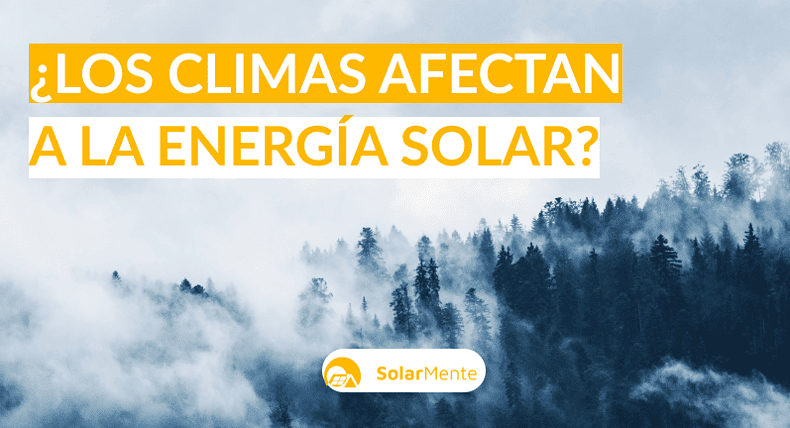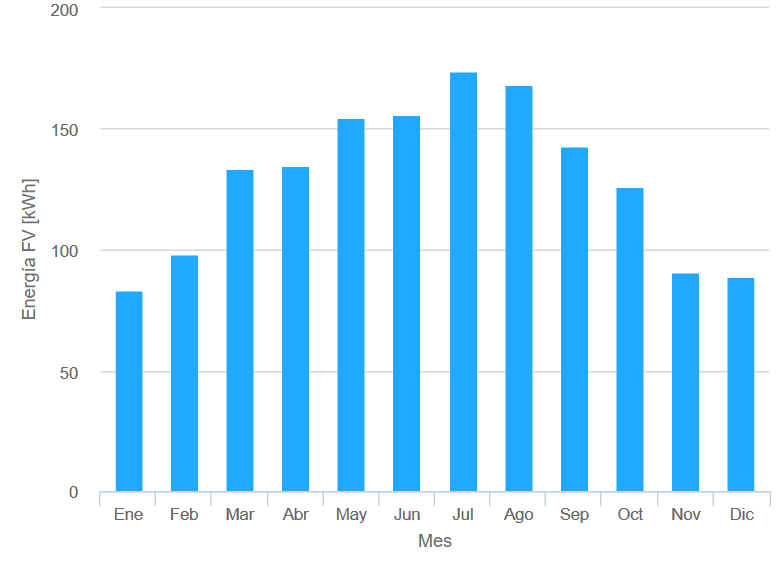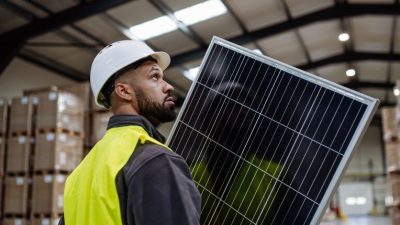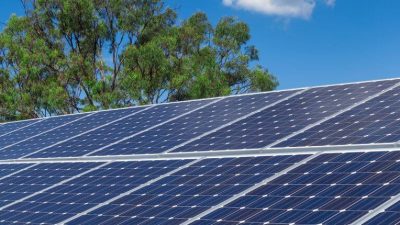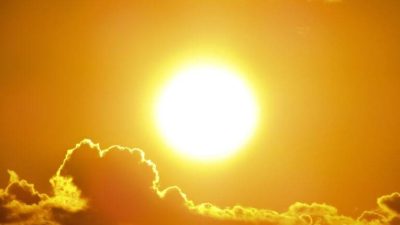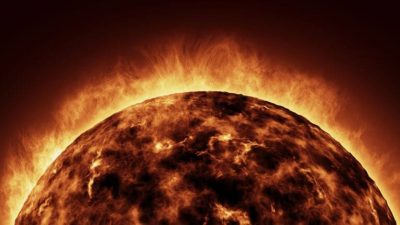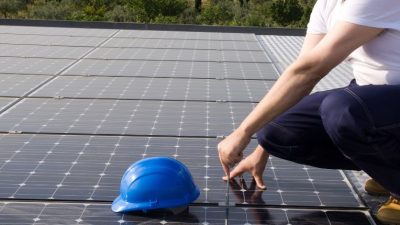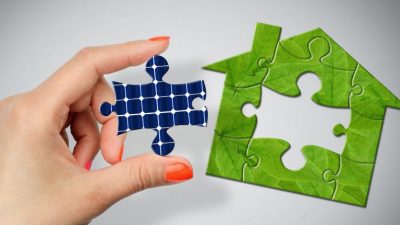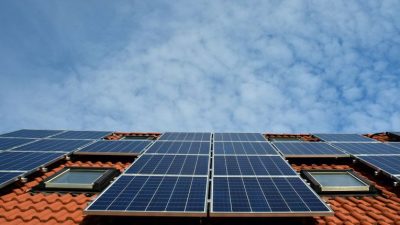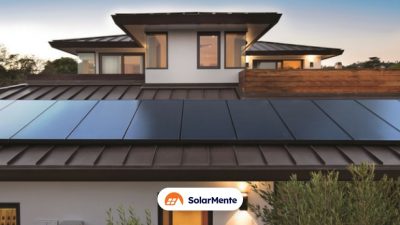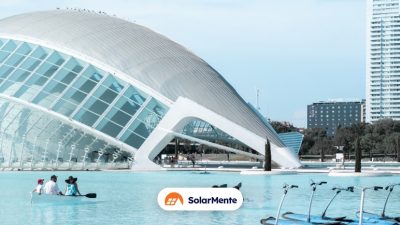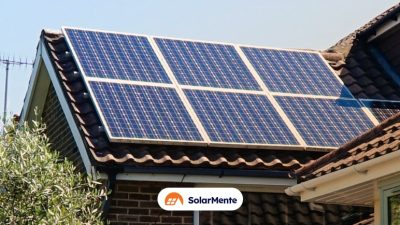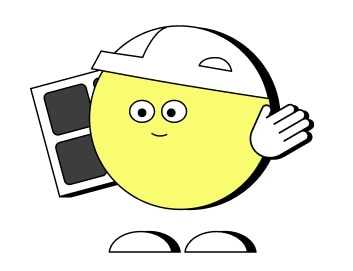That we need solar radiation for the operation of solar panels is a fact, but how do different weather phenomena affect them?
Do they generate energy on cloudy days? What happens to solar panels when it rains?
One of the main concerns when switching to self-consumption is how atmospheric agents affect the performance of solar panels.
And we are not only talking about performance, but also about the possibility of damage to the system in the event of extreme weather conditions.
That is why we are going to tell you here:
-
How the weather affects energy production
-
The impact of rain on the modules
-
Does heat benefit or harm the system?
-
Hail and its impact on solar panels
How do seasonal changes affect solar energy?
Let’s take a look at how seasonal changes affect solar energy production and how to protect panels from extreme weather factors.
In spring and summer
During spring and summer the days are longer and solar production is at its peak.
These warm seasons are characterised by rain and hailstorms. These are less damaging phenomena than snow and ice, but there are a number of solutions we should consider to protect our system.
In autumn and winter
In autumn and winter, on the other hand, the days are shorter and solar production is limited.
Below is a graph of monthly energy production of 1 kWp with photovoltaic solar panels located in central Spain for one year.
Source: Photovoltaic Geographical Information System (PVGIS), European Commission, EU Science Hub.
Remember that these are the coldest months of the year. Temperatures drop and weather phenomena such as snow and ice occur. These can have an impact on the efficiency of the system, and it is therefore necessary to take a number of actions to ensure that the system is protected from damage.
Are solar panels damaged by rain?
If the installation has been carried out correctly, rain should not cause damage to the system. In fact, rain helps to keep the panels clean, as long as the inclination is appropriate.
Damage caused by rain is rare.
Let’s see.
Just because it’s not common, doesn’t mean it doesn’t happen, but it’s unlikely. If rain damage does occur, it may be due to manufacturing defects.
The performance of solar panels on cloudy or rainy days
There is a clear concept of how solar panels work: the more hours of sunshine, the more energy production.
And although in the autumn and winter seasons we do not have as much solar radiation, it is a mistake to say that on cloudy or rainy days solar panels do not generate energy.
We explain why.
The solar radiation penetrates the clouds and the system continues to produce energy. Less of it? Yes, but you will still have enough energy for your daily household consumption.
Feeding your home with clean energy in the colder months won’t be a problem.
What about the wind?
The mounting of the installation plays an important role in the solar installation if we do not want the wind to compromise the safety of the structure.
Specifically, we are referring to the sail effect, i.e. the wind blows from the back and its force transmitted to the modules can detach the structure or cause damage to the anchoring.
For this reason, the type of cover becomes more important. Its function is to minimise the impact.
In any case, the installation company must carry out an analysis of the effect of wind to avoid damage to the structure in the future.
Is heat harmful or beneficial to solar panels?
The crux of the matter.
One of the most common questions we have received and it still generates doubts.
It is important to differentiate between heat and sunlight.
They are not the same thing.
In fact, manufacturers point out that extreme heat is detrimental to energy production.
Temperatures above 25°C can cause modules to overheat and have an impact on performance, reducing their energy efficiency.
To minimise this impact in seasons with high temperatures, choosing quality PV modules is vital. And be careful that they also have a low temperature coefficient.
How do solar panels work in snow and ice?
Don’t be afraid of snow. In general, it is not a phenomenon that causes problems for your installation.
Your solar panels are tilted, which makes it easier for any snow to slide off.
However, if heavy snowfall occurs, precautions should be taken.
First of all, the accumulation of snow is a weight on your installation that can cause damage to the structure and reduce energy production. Moreover, if it covers the modules, it will make it difficult to absorb sunlight.
Secondly, beware of ice.
If you don’t remove the snow in time, it can freeze. It becomes difficult to clear and the operation of the system will be affected. So, before you get into this situation, keep it free of snow.
Maintenance can be done on your own. Carefully remove the snow and avoid products that are harmful to the surface.
But if the snow is thick, consult a specialised company before handling the system.
Does hail affect performance?
Well, another concern is the effect of hail on the solar panels.
Can it damage the system?
The modules are made of tough materials that withstand the impact of extreme weather conditions. They are built with tempered glass, a component that is strong enough to withstand heavy blows.
At SolarMente, we pay special attention to the materials of the solar panel manufacturers we work with.
However, no company can guarantee 100% protection. We cannot predict the weather and the impact. Therefore, you should protect your system from hail or any other phenomenon by taking out solar panel insurance to cover damage caused by nature.
Installing solar panels is a good year-round option
Solar panels actually rely on sunlight, not heat. Therefore, the electricity production of photovoltaic solar panels is also maintained in winter and even on cloudy days.
Although in the summer months we receive more solar radiation, which results in a higher energy yield, in winter we still get a considerable amount of electricity.
Moreover, preventing damage to our photovoltaic system does not require a great deal of effort. Maintenance is easy. If you stick to it, the service life of your panels will increase and you will no longer have to worry about faults in your system.
Our advice is not to worry too much about the weather. As we have seen, it is not an impediment to enjoying self-consumption in your home.
What is really important is that:
-
You generate clean, renewable energy.
-
You reduce your electricity bill by up to 50%.
-
You get more independence from the electricity grid.
And to enjoy all these advantages, you have photovoltaic installations.
Calculate how much you can save on your electricity bill every month by following this link.

